By Haley Sweetland Edwards
Time.com
Just before 7:30 one Friday morning last March, Alejandro said goodbye to his wife Maria and his two small daughters and headed off to work. He didn’t make it far. Four blocks from his home near Bakersfield, Calif., two unmarked vehicles, a white Honda and a green Mazda pickup truck, pulled up behind him at a stop sign. Plain-clothes Immigration and Customs Enforcement (ICE) agents spilled out. They wore vests emblazoned with the word POLICE.
Alejandro dialed Maria from his cell phone and told her what was happening. Her heart dropped. She said later that she knew it wouldn’t matter that Alejandro had no criminal record, not even a speeding ticket. Or that he’d driven these same roads every day for the past decade, picking grapes, pistachios and oranges in California’s Central Valley. Since 2006, when Alejandro overstayed his visa, he had been considered a “fugitive alien,” in ICE parlance, and therefore subject to immediate deportation to Mexico. Now he was arrested on the spot.
A few days later, he was given an ankle bracelet and allowed to return home to say goodbye. He was gone by the end of spring—before his eldest, Isabella, began talking, before Estefania took her first steps, before Maria gave birth this winter to their third baby girl.
The family’s experience—including the fear of being targeted if their names were not changed in this story—has become increasingly common during the Trump Administration. While President Obama told ICE to focus on violent offenders and recent border crossers, among others, President Trump has cast a much wider net. In early 2017, his Administration issued a series of edicts to ICE agents, prosecutors and immigration judges: any and all of the estimated 11 million people in the country illegally are now a priority for deportation. “There’s no population that’s off the table,” Thomas Homan, the acting director of ICE, told reporters in December. “If you’re in the country illegally, we’re looking for you.”
The new approach has led to a surge of new arrests. Between 2016 and 2017, apprehensions of undocumented immigrants jumped by a third. That increase was driven primarily by arrests of people like Alejandro with no prior criminal record. In 2017, President Trump deported more than double the number of noncriminals than Obama had the previous year. The detainees prioritized by Trump’s approach included community leaders, doting parents and children: a 10-year-old girl with cerebral palsy in San Antonio; a grandmother described as the “backbone” of a Navy veteran’s family; a father of two in Detroit who had lived in the U.S. since he was 10 years old.
A major consequence of this new policy has been an explosion of fear among immigrant communities, which are reacting not so much to the spiking number of arrests but to the apparent randomness of the roundups. “When everyone’s a target, no one is safe,” says Luis Zayas, dean of the Steve Hicks School of Social Work at the University of Texas at Austin. He cites instances of ICE agents arresting people who had just filed paperwork for a green card, left church or dropped off their kids at school. “The arrests feel arbitrary, and that’s different,” he says. “The fear is worse now than I’ve ever seen it.”
Which may be the point. “Quite frankly, illegal immigrants are supposed to be afraid of detection,” says Mark Krikorian, executive director of the Center for Immigration Studies, a group that presses for significant immigration controls. “They’re illegal, they’re breaking the law, why shouldn’t they live in the shadows?” Immigration hard-liners say the policy is working. In 2017, the number of people caught sneaking over the U.S.-Mexico border had fallen to its lowest level in 46 years, according to a Department of Homeland Security (DHS) report. “That’s not a coincidence,” Homan said.
But the new policy doesn’t affect only those who are in the country illegally. It upends a broad swath of American society, including the communities and families of undocumented people, many of whom are U.S. citizens. More than 4 million American kids under the age of 18 have at least one undocumented parent, and nearly 6 million live in so-called mixed-status households, sharing bedrooms with family members, like brothers and sisters, who are now targets for arrest. Every year, tens of thousands of American kids see at least one parent deported, according to the Urban Institute. It’s an experience that, studies show, pushes families into poverty and leads to higher rates of PTSD and struggles at school.
For Maria and her daughters, the fear has only begun. Like Alejandro, Maria is undocumented; all three of their daughters are U.S. citizens. Which means every day contains the prospect of the children becoming separated from their mother as well. “It’s a cruel way to live,” says Maria, wiping away tears with the heel of her hand. “You’re always asking, What’s the worst that could happen now?”
After her husband was deported, Maria, an undocumented farmworker, was left to raise their three daughters on her own.
Michele Asselin for TIME
In Maria and Alejandro’s neighborhood, news of his arrest went viral. His Facebook feed, already a portrait of a community’s anxiety, began to accrue up-to-the-minute reports on ICE sightings in town and rumors of planned immigration raids at warehouses nearby. Don’t go to the Walmart, an ICE truck was seen parked nearby.Plainclothes agents are watching the park. In a phone interview from Mexico, Alejandro told me that many of his old friends now avoid leaving the house, limiting necessary errands to blitzes after dark, when agents are thought to be less active. Sitting in a folding chair on the patio outside her home, Maria describes a similar drumbeat of distress. She doesn’t use the word miedo, fear, but a more visceral term: pavor. Dread.
The disquiet seeps into daily life. In Orange County, California, for example, dozens of undocumented adults have chosen to un-enroll their U.S.-citizen children in benefit programs like SNAP and school lunches, because they fear having their names in a government database, says Teresa Smith, executive director of the local Catholic Charities. “These are families that very much need that food,” she says. “This isn’t a decision made lightly.”
Immigrant advocates’ offices, meanwhile, are swamped. At a recent “Know Your Rights” session for undocumented immigrants at the United Farm Workers Foundation in Bakersfield, the line to enter snaked around the corner and down the block. At the Coalition for Humane Immigrant Rights of Los Angeles (CHIRLA), the waiting room is papered with posters, pamphlets and worksheets with advice on what undocumented people should do if they’re pulled over, their workplace is raided or ICE agents show up at their home. One handout advises undocumented parents of minors to follow a numbered checklist to be ready in the event that they are picked up. Tip No. 3: “Prepare a letter giving legal power to someone trusted, to care for your children in case you’re arrested.”
Jorge-Mario Cabrera, the communica-tions director at CHIRLA, says much of that advice is easier to offer than follow. Many parents don’t have a trusted friend or relative capable of taking on their children in case they’re deported, he explains. In South Florida, Nora Sandigo, an immigrant advocate, has assumed power of attorney for roughly 1,250 children of undocumented parents in case the adults are sent away. Thomas McCoy, an assistant superintendent in the Oxnard (Calif.) Union High School District, which serves a large immigrant population, says administrators have asked parents to file guardianship instructions with school administrators. “They need to know where to send a kid home,” he explains.
In the grimmest cases, kids whose parents are arrested or deported are orphaned. According to a 2015 Urban Institute report, an estimated 5,000 children in child-welfare custody had a detained or deported parent.
Some advocates advise parents to leave information not just about their children’s guardians, allergies and medications, but also about their personal details. What’s your toddler’s favorite stuffed animal? What lullaby helps your baby sleep? “If your mom was just deported, having a caregiver know where to find your special blanket isn’t going to fix it, but it helps,” explains Fatima Hernandez, programs director at the United Farm Workers Foundation, a nonprofit serving agricultural workers. Others advocates offer tips on talking to older children about what to do if they come home from school and find the house dark.
Those in favor of hard-line immigration enforcement sometimes roll their eyes at media reports of families broken up by deportation. “The parents can just take the kids back with them,” Krikorian says. “No families have to get broken up.” But when pressed on specific cases, he sighs. “Look, when it does happen, it’s not a great situation. I’m not delighted to see it,” he says. “But it’s not our problem. These immigrants are adults; they have to be responsible for their actions. Kids sometimes suffer from the bad decisions their parents make. If Mom and Dad stop paying their mortgage and get evicted, the kids don’t get to stay in the house.”
The undocumented parents I talked to in California were more conflicted. Sara, who asked that TIME not use her last name because she is worried about being targeted, came to the U.S. from Honduras in 2001. She has a 13-year-old son with a mild learning disability. He is small and fragile-looking, with glasses and birdlike hands. Sara can’t imagine taking him back to Honduras, a country he has never even visited, and especially to her hometown, San Pedro Sula, which has one of the world’s highest murder rates. Even if she felt she could keep him safe there, she says, she doesn’t know if his U.S. citizenship would prevent him from accessing health care or other benefits once they arrived.
I asked Sara about Tip No. 3 on the CHIRLA checklist—if she is arrested, who would she list as her son’s guardian? She considers the question for a long time, pressing her palms together as if in prayer. I tell her I’ve heard of other families that have left young children in the care of older ones. In Bakersfield, an 18-year-old woman is now the sole guardian for her 9-year-old brother. In Queens, New York, two college-age siblings are now the sole caregivers for their 15-year-old sister, who has a severe form of autism. “I don’t know,” Sara says finally. “What would you do?”
Luis Urrieta, 16, and his mother Rosa don’t have a plan either. Rosa, who is undocumented and works as a pastry chef, came to the U.S. from Mexico nearly two decades ago. Luis, who is a U.S. citizen, has awoken in the night with a pounding heart after nightmares about Rosa being taken away. Wearing red mesh basketball shorts and a striped shirt, he struggles to describe the anxiety and instead lists all the reasons he needs his mother to stay around: she cooks dinner for him and encourages him and pays the bills. “She is my whole life,” he says quietly. But then he raises his voice, as if to dispel the fear. They’ll be safe, he says, because they live in San Francisco, a so-called sanctuary city where local law enforcement doesn’t partner with ICE. In the days and weeks after our conversation, ICE arrested roughly 400 people across Northern California and in Los Angeles in a series of raids that included sanctuary cities. On March 6, the federal government sued California over its sanctuary-city laws.
A number of recent research papers have reported that the prospect of losing one’s parent can inflict psychological damage on a child. “These kids are under constant, extreme levels of psychological stress that other children don’t have to endure,” says Zayas, whose academic research on the American-born children of undocumented immigrants is included in his book Forgotten Citizens. “It affects the child’s educational performance, their developmental trajectories, how they achieve things. It affects the entire neurobiology of a child.”
A 2015 Urban Institute study found that many children of detained or deported parents became depressed, showed signs of deteriorating health and performed poorly in school. And a January 2017 study by University of Michigan researchers found that such distress can manifest physiologically in unborn children. Latino babies born in the 37 weeks after a 2008 federal immigration raid in Postville, Iowa, were 24% more likely to have low birth weights than those born a year earlier. One common characteristic shared by children of undocumented parents, Zayas says, is “hypervigilance.” Without looking at a clock, an 8-year-old girl will know exactly how long it takes her mother to go on a groceries run. “If she’s two minutes late, there’s extreme anxiety,” he says. Even very young kids, he adds, are keenly aware of how quickly their parents could vanish.
The architecture of all this fear is not incidental. It’s the result of policy. The agents who pulled over Alejandro were acting within the bounds of U.S. law. So the question surrounding his arrest is not whether it was legitimate; it’s whether it was a good use of resources. Why choose him, a family man with no criminal record, over any of the 11 million other undocumented people in America?
Even operating full tilt, ICE has nowhere near the manpower or money to enforce U.S. immigration laws against everyone in the country illegally. Experts estimate that the agency has the capacity every year to deport roughly 4% of all undocumented immigrants. So the real challenge is to establish clear priorities about who should be at the top of the list. In theory, all DHS employees, from ICE officers on the street to prosecutors in immigration court, have the power— known as “prosecutorial discretion”—to determine when and whether to enforce immigration laws. But in reality, those decisions are shaped from the top. Presidents determine what immigration policy will look like.
Both the Obama and George W. Bush Administrations assumed this responsibility. They directed DHS employees to use their prosecutorial discretion to prioritize the deportation of certain criminal groups. They also outlined clear factors like old age, U.S. military service or a lack of criminal record that might mitigate enforcement.
Illustration by Michele Asselin for TIME
The Trump Administration has not issued similar prerogatives. In January 2017, Trump signed an Executive Order calling for the enforcement of immigration laws against “all removable aliens,” and in February 2017, DHS rescinded all previous Administrations’ priorities and restrictions. Then DHS Secretary John Kelly replaced them with new guidance so broad that employees were effectively instructed to “prioritize” the deportation of all undocumented immigrants. The only listed exception were those who qualified for Deferred Action for Childhood Arrivals, a now uncertain program shielding those who were brought to the U.S. as children.
“Prosecutorial discretion shall not be exercised in a manner that exempts or excludes a specified class or category of aliens from enforcement of the immigration laws,” wrote Kelly in a memo to staff. The Administration also eliminated Obama-era moratoriums on certain types of enforcement, including what’s known as “collateral arrests,” which is when ICE agents detain not only an intended target, but also anyone else “deportable” nearby.
Immigration hard-liners, like Attorney General Jeff Sessions, have cheered the change. The new policy, they say, restores the enforcement of U.S. immigration law “as written.” But critics argue that this doesn’t track. Congress has not given DHS more money or enforcement officers, so there can’t simply be more enforcement. The difference is who is being enforced against. Despite the President’s frequent talk of “rapists and murderers,” the most influential shift in 2017 was that ICE agents arrested 146% more noncriminals, compared with the year before. In 2016, 14% of the people whom ICE arrested had no criminal record. In 2017, close to 26% were. “There’s the sense that they’re just going after low-hanging fruit,” says Pratheepan Gulasekaram, a constitutional and immigration law professor at Santa Clara University.
The effect is an implied war on all undocumented immigrants. It’s a move that unravels decades of state, federal and local policies designed to establish a level of relative security among immigrant communities, experts say. That security, in turn, encourages broad social benefits—like people reporting crimes to police, rather than avoiding all officers, or enrolling children in government health programs. Under Trump, that’s all up for grabs.
Take Amenul Hoque, for example. The Bangladeshi father of three, who overstayed a visa in 2005, had lived in Newark, N.J., with his wife and three kids for the past 14 years. In 2011, ICE officials granted Hoque a temporary stay of removal, requiring that he check in regularly with ICE, which he did. His next check-in was scheduled for March, according to local news. But on Jan. 17, ICE agents showed up at the fried-chicken restaurant where he works, detained him for nearly a month and then loaded him onto a flight to Bangladesh. Hoque’s wife Rojina Akter, who is also undocumented, is now in deportation proceedings as well.
This decision to create “a culture where enforcement appears to happen randomly,” Gulasekaram says, is not an accident. It has the effect of discouraging new immigrants from coming to the U.S. and encouraging existing ones to leave. The Trump Administration deported fewer immigrants last year largely because fewer people were attempting to cross the border.
In a statement to TIME, Danielle Bennett, an agency spokeswoman, said that “national security threats, immigration fugitives and illegal re-entrants” remain priorities for deportation. The agency has also said that it does not “unnecessarily disrupt the parental rights of alien parents and legal guardians of minor children.” In its 2017 report, ICE also stated that 92% of its arrests in 2017 were criminals. Its definition of criminal includes those with civil offenses, like non-DUI traffic stops, and those whose only crimes are immigration-related.
Undocumented immigrants in communities across the country are struggling to gauge the threat. Maria, who is now caring for three U.S.-citizen children on her own, feels trapped. She can take her kids back to a country where she has citizenship rights but where they have none. Or she can stay in the U.S. and live in fear. Because she’s already here illegally, she has no easy path to legal status. Trump uses terms like anchor babies and chain migration to describe how families supposedly bring their relatives into the country, but it doesn’t actually work that way, says Laura St. John, legal director at the Florence Immigrant and Refugee Rights Project. “It’s a myth.”
St. John says Maria’s American-born children can’t petition DHS to give her legal status until the eldest turns 21. That’s in 2036. Someone in Maria’s position would need to obtain a federal waiver, a process that often takes up to 10 years and could require that she return to Mexico to wait it out, St. John explains. Maria’s brother, a U.S. citizen, could also petition for her, but that too would likely require Maria to return to Mexico, for an even longer period of time. The State Department is so backlogged that it’s currently processing visa requests for Mexican siblings filed on Nov. 15, 1997. “To people who practice immigration law, ‘anchor babies’ and all that just sounds ridiculous,” says Erin Quinn, an attorney at the Immigrant Legal Resource Center in San Francisco. “There’s really no legal mechanism for people like [Maria] to leave and come back legally. It just doesn’t exist.”
For now, Maria will stay in the U.S., pick grapes and care for her children in the country of their birth. But when she imagines raising her girls without their father, tears slide down her cheeks. “It’s the worst thing that you can do to a family,” she says. Every day, when Alejandro calls on FaceTime, Isabella, who’s 2½, lights up. “Papi?” she asks, reaching for Maria’s iPhone. A thousand miles south, in Sonora, Mexico, Alejandro holds his screen close to his face. “Papi!” Isabella squeals. “I love you!”

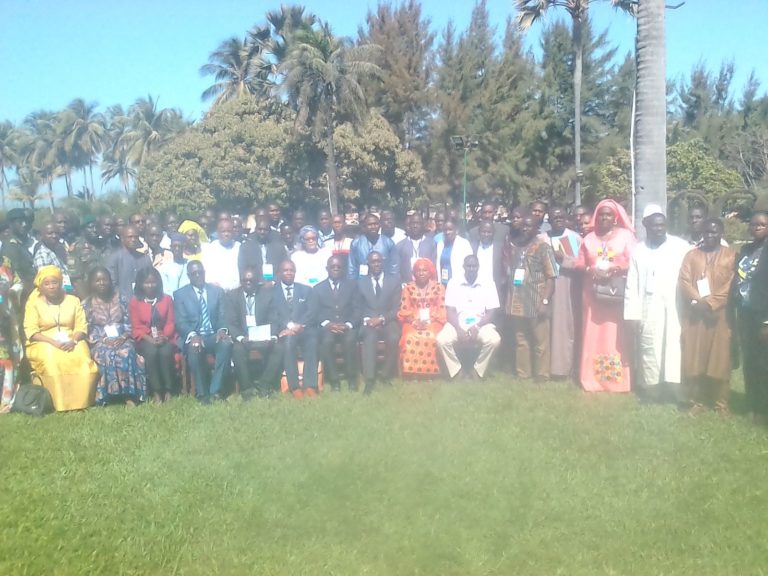


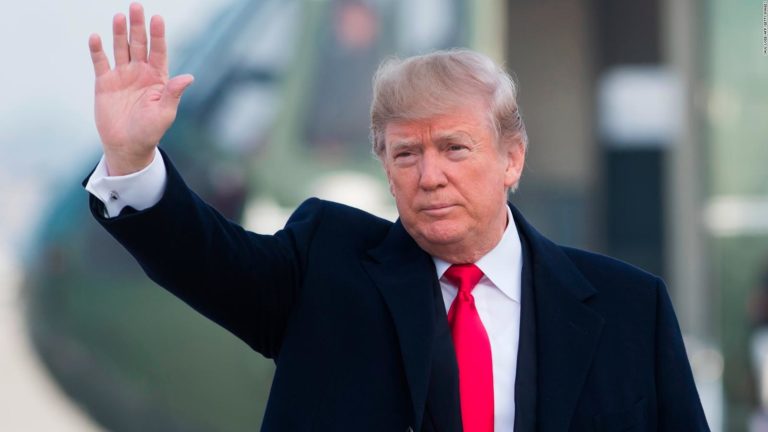








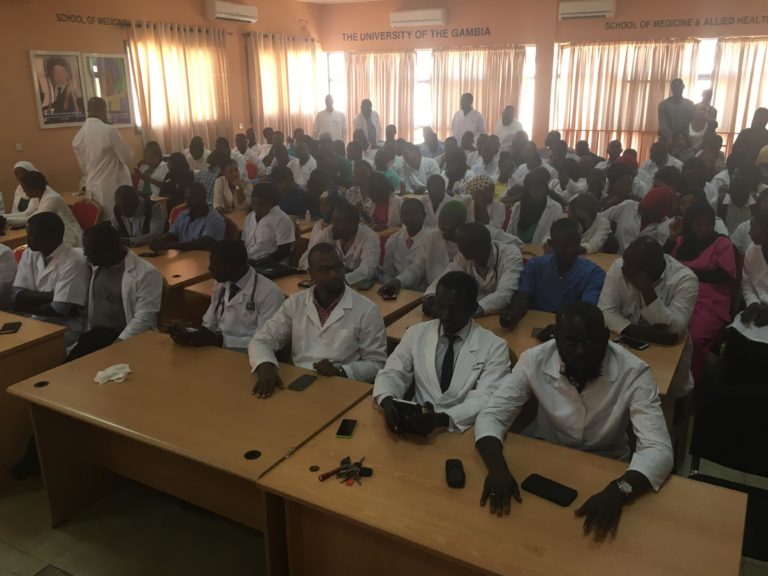

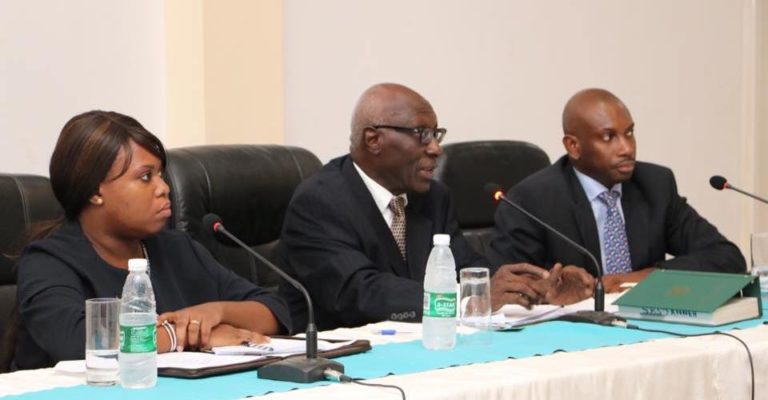
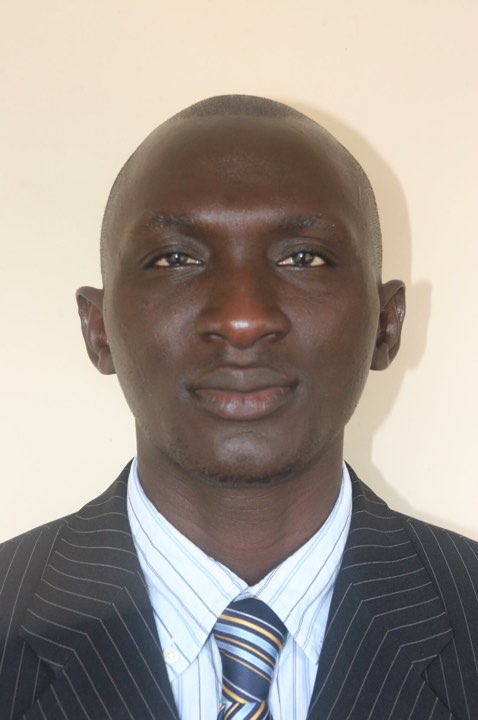




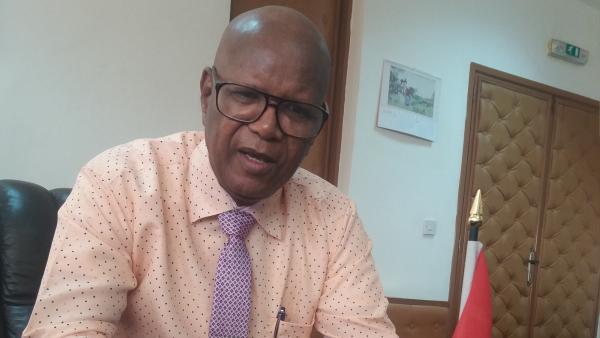

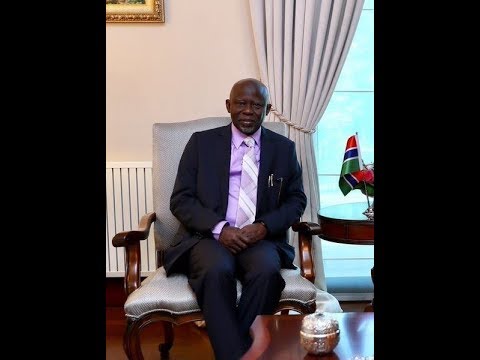
Addressing Youth Unemployment To enable Africa Benefit From The Demographic Dividend
Africa continues to face various complex challenges to ensure inclusive growth for all sectors of society, especially the youth. In accessing the projected growth of the continent’s youth population, it is of vital necessity for national governments and regional bodies like ECOWAS, to carve out lasting solutions for the challenges ahead.
Across the continent, several countries have now instituted a national youth framework, as a result of the ‘African Youth Charter’, adopted by the African Union at the summit of Heads of State and Government in Banjul, on July 2006 (ILO, 2012). The Charter enjoin responsibilities to Member States for the development of youth. Not only does it provide the Governments, Youth, Civil Society and International Partners with a continental framework, which underlines to the rights, duties and freedoms of youth, it also paves the way for the development of national programs and strategic plans for their empowerment.
Many countries, including the Gambia, are already taking active steps towards youth-centered economic policy frameworks. By 2014, forty-two countries had signed the Charter and 36 members had ratified it. In the Gambia, youth policies are the responsibility of a dedicated ministry, or have a minister responsible for youth combined with other portfolios, such as sports, children or women’s affairs. Further, government departments like the Ministry of Trade and Employment also implement important initiatives all geared toward helping young people.
It is imperative for the constructive involvement of Youths in the development agenda of Africa and their effective participation in the debates and decision-making processes. Policies to address youth unemployment are shaped by ‘Political pressures’, ‘Technocrats’, ‘Socio-economic realities’ and international best practices. But politicians often introduce relatively easy to target policies, designed to yield short-term gains in response to pressures to address economic issues facing young people. More over governments may adopt policies to signal their commitment to good governance. Countries like Uganda, Tanzania and Kenya have opened funds for young entrepreneurs, with the support of the ILO (Elder and Kone’, 2014).
However, in general, young people are not sufficiently involved in policy development in Africa (World Bank 2007). When policy makers do consult the youth collectively, specific groups may shape outcomes. Educated, urban and male youth, for example might have greater access to policy discussions than other young people, thereby shaping policy outcomes in a way that might not represent the challenges of female and or rural youth. This might reflect the relative ease of engaging with young people who have strong networks and who are located in urban centres (for example university students).
The African Youth Charter has set a framework to enable policy makers to mainstream Youth issues in all development policies and programs. It is, therefore, important to recognize that when policy makers give space to ‘youth voice’ they are aware that a selected few may not represent all young people. There is a definite need to engage with the ‘youth’ in a wider and more representational manner, such as through surveys, youth clubs or perhaps social media.
Poor coordination, among the actors responsible for policies targeting the youths, may undermine their effectiveness. Therefore youth policy may require action on a number of fronts and it could be difficult to align the relevant actors around a common vision and set of priorities. Policies to support young people may rely on different levels of government, such as municipal government, which may face capacity and fiscal constraints in their ability national directives on youths. Also, ministers in charge of youths and related policies are typically political appointees who may have low levels of interest in achieving objectives that extend beyond their terms. An effective steering committee, that can coordinate policies across departments, may be important for policy coherence and effectiveness. Alternatively, recognizing the constraints of a government or uneven capacity across departments success lie in a limited number of agencies developing focused policies on youth employment.
Policies can also be differentiated with respect to their horizon. Employment problems comprise challenges that policies could address over a relatively short time horizon, such as soft skills training or providing information about existing vacancies to suitable candidates. Other challenges will take a much longer period of time to achieve result, such as improvement to basic education or, most critically, addressing a fundamental shortage of jobs through demand-size policies.
Finally, the efficacy of a policy may depend on its complementarity with other policies. One of the lessons from the past is that programs are more likely to succeed if they link financial and skills training in the same program (AfDB et al.,2012). An analysis of the youth program in Nigeria indicates that the government has focused on training but neglected the provision of soft loans (Akande, 2014).
In summary, many African governments including the Gambia have implemented policies to support young people in the labor market, especially entrepreneurial training with varying degrees of success. Consequently, the current set of policies do not reflect a major shift from the standardized recommendations globally. Moreover, intergovernmental coordination, interest groups and direct youth participation, ultimately, shall determine the success of youth policy in Africa.
Omar Kolley, London